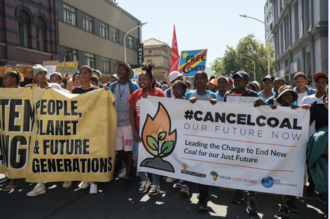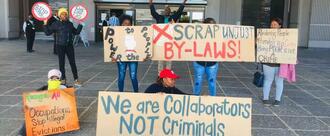- Featured
- Clean air
- Climate justice
- Consumer Rights
- Corporate Accountability
- Data access
- Early Childhood Development
- Economic fairness
- Education
- Electoral fairness
- Environmental justice
- Food justice
- Gender based violence
- Grants/social assistance
- Health
- Housing and infrastructure
- Industry interference
- Land Justice
- LGBTQIA+ rights
- Media/ information access
- Public transport
- Racism
- Reparations
- Safety
- Sanitation
- Service Delivery
- Sexual and Reproductive Rights
- Social justice
- Unemployment
- Womxn's rights/ gender equality
- Workers' rights
- More
-
We want a skills development center at NgwelezaneConverting IThala Building into a skills development institution will not only fix the issue of the abandoned building but it will empower the youth with various skills that will equip them for entrepreneurship or job market. Revamping and repurposing of the building will be executed by a team of students as part of their Work Integrated Learning and Leanership programme which will be mainly funded by various SETA’s, thus cutting down the labour costs significantly.249 of 300 SignaturesCreated by Mpendulo Mbulawa
-
Demand warning labels on all unhealthy foodMany of us don't realise that some food products we buy threaten our health [1]. Big food businesses have used adverts and health claims to influence what we eat for years. Massive profits have been made selling us products high in sugar, salt, fat and added sweetener. We are seeing more and more people in our communities suffering from diseases like type-2 diabetes and high blood pressure that can lead to stroke or heart disease [2]. Our children are targeted by adverts and marketing strategies that can influence what they eat for years. But we have an opportunity to help change this. The good news is that government is listening to public health experts and considering regulations that would limit advertising and force businesses to put warning labels on their unhealthy products [3] so we know what is in our food. But some big businesses will do anything to protect their profits even if it hurts our health. Cigarette companies tried to stop government warning labels on their products [4], and already some big food businesses have been finding ways to lobby the health department behind closed doors [5]. We only have until the end of the 21st of September 2023 to send in enough public comments to show the health department that we support warning labels on all unhealthy food and regulating advertising aimed at children and misleading health claims. The evidence is on our side [6], so if enough of us come together to send public comments to support stronger regulations with no loopholes, our leaders may have no choice but to listen. [1] https://sajs.co.za/article/view/3761 [2] https://www.thelancet.com/journals/langlo/article/PIIS2214-109X(16)30113-9/fulltext [3] https://www.gov.za/sites/default/files/gcis_document/202304/48460rg11575gon3337.pd [4] http://legacy.library.ucsf.edu/tid/ldc73a99/pdf [5] https://www.dailymaverick.co.za/article/2022-05-30-heres-why-you-should-care-about-the-food-industry-lobbying-the-health-department-behind-closed-doors/ [6] https://www.sciencedirect.com/science/article/pii/S0195666322003749 https://www.ncbi.nlm.nih.gov/pmc/articles/PMC9388905/ https://journals.plos.org/plosone/article?id=10.1371/journal.pone.02576266,939 of 7,000 SignaturesCreated by HEALA

-
We demand accountability for the systemic failures that led to the Enyobeni tragedyTo civil society organisations and individuals across the country, The Enyobeni Tavern tragedy doesn’t just affect the families, friends and communities of the 21 young people who died in the early hours of 26 June 2022. It affects all of us because it could have happened anywhere in the country – in alcohol outlets in cities, towns and villages across all provinces, in rich or poor areas, in suburbs, townships or informal settlements. It’s easy to point a finger at the adults responsible for running the tavern. Some people even blame the parents, the children themselves. But where does the real responsibility lie? We elect local, provincial and national governments to serve us, to ensure our health, safety and wellbeing, to protect us from harm. We expect government to put in place laws that set guidelines for what can and can’t be done and to ensure that those laws are enforced. We expect government to identify challenges in society and to address them. We expect government to be responsive, to listen to us, the people who voted them into service. Please sign this petition and share it with others. We need to speak with a loud voice to call on the President to ensure there is a proper inquiry into the Enyobeni Tavern tragedy and that effective steps are taken to make sure it never happens again. The lives of the Enyobeni 21 can never be brought back, but we can make sure that their deaths are not in vain, that they can lead to the creation of an alcohol-safer South Africa going forward. Sign the petition now and share with everyone you know! Issued by the Southern African Alcohol Policy Alliance in SA (SAAPA SA), supported by the Scenery Park 21 Families Support Organisation and the South African Council of Churches (SACC), Eastern Cape1,125 of 2,000 SignaturesCreated by Southern African Alcohol Policy Alliance in SA (SAAPA SA)

-
Demand better mental health services for our childrenChildren in South Africa face extraordinarily high levels of adversity that increase their risk of developing mental health problems: - Two-thirds of children (63%) live below the upper-bound poverty line. - Nearly one in two children (42%) have experienced violence, including physical violence (35%) and sexual abuse (35%). In some communities such as Soweto, 99% of children have either witnessed or experienced violence in their homes, schools and/or communities. It's therefore not surprising that more than 1 in 10 children in South Africa have a diagnosable and treatable mental disorder. This includes neurodevelopmental disorders such as ADHD and autism as well as depression, anxiety, post-traumatic stress disorder, conduct, learning and substance-use disorders. And COVID-19, conflict and climate change are placing increasing pressure on young people's mental health. * WHY SHOULD WE CARE ABOUT CHILDREN'S MENTAL HEALTH? Mental disorders in young people not only cause distress for children and their families. They interfere with children’s ability to function in everyday life. Without adequate support, children may struggle at school with higher rates of absenteeism, grade repetition and dropout, undermining their education and economic prospects. Others may start to self-medicate with substances or resort to self-harm to cope with their symptoms, or they may channel their anger and distress outwards through disruptive, harmful, and, some instances, criminal behaviour. In this way, our failure to support children's mental health ripples out across their lives - and across generations. Fifty per cent of all mental disorders begin before the age of 14 years. So we need to intervene early in childhood and adolescence to break the cycle of violence, poverty and poor mental health. * WHY ARE CHILD AND ADOLESCENT MENTAL HEALTH SERVICES IN CRISIS? There are only 15 child and adolescent psychiatrists working in the public health system. In most communities, mental health services for young people are simply unavailable - leaving 9 in every 10 children with a diagnosable mental disorder unable to access treatment. Few health facilities have dedicated facilities for children and adolescents with acute mental illness. As a result, adolescents are kept in adult wards where they may be exposed to adult psychiatric patients and assessed by staff who lack the appropriate skills and expertise. These problems are rooted in government's failure to allocate adequate resources to mental health services and violate children's rights to mental health care.1,598 of 2,000 SignaturesCreated by Children's Institute- University of Cape Town
-
Treasury did big sugar businesses influence your decision?On the 1st of April, the day the HPL increase was to start, Treasury issued a statement postponing the increase [1]. Treasury did not justify this last-second decision, which has raised concerns about what evidence was used to make this decision. Did Treasury choose to put profits before health by agreeing to the demands of the sugar industry? The sugar industry has a conflict of interest when it comes to the sugary drinks tax. That's why it is important Treasury reassure the public that the sugar industry did not influence their decision. The sugar industry has used its power and resources to attack the sugary drinks tax [2]. HEALA has called on Treasury to provide the research and information that was used to make the decision to delay the HPL increase by a year. HEALA has also called on Treasury to confirm whether they engaged with the sugar industry and its associates. If so, in the interest of transparency, Treasury must share meeting minutes and records of engagements and communication with industry. But Treasury has refused to respond to HEALA. The organisation had to resort to submitting a Public Access to Information Act (PAIA) application, but the deadline to respond has come and gone. But if enough of us come together, we can turn up the public pressure on Treasury to be transparent and accountable when it comes to decision-making processes which greatly impact the health of millions of people in South Africa. [1] Media Statement: Release of Revised Draft Rates and Monetary Amounts and Amendment of Revenue Laws Bill. National Treasury. 1 April 2022. [2] Well-conceived sugar tax needs further strengthening to save lives of millions. By Mikateko Mafuyeka and Petronell Kruger for Daily Maverick. 22 September 2022.48 of 100 SignaturesCreated by HEALA

-
Stop closed door meetings between government and big businesshttps://youtu.be/nuVHJT_rhgI Imagine your teacher smoking in the classroom. For some of us, this was the reality until new rules were put in place by government in 1993 [6]. But why had government not acted sooner? In their paper published in 2003, Mia Malan and Rosemary Leaver outline the relationship between the biggest tobacco business and government [7] [8]. Government eventually put public health before profits, thanks to the work of health advocates. But big businesses are still using their power to protect their profits at our expense. Researchers have pointed out that big businesses have worked to delay and delegitimize important health policies by using their associations and different strategies [9]. Researchers and civil society groups are not allowed to attend a standing meeting between the National Department of Health and big food businesses [9]. State capture has shown us we have a lot of work to do. But we are making some progress in improving transparency and accountability. Politicians have to declare financial interests [10], and political parties now must disclose who funds them [11]. We need to keep building on this momentum. We can't afford to have a repeat of 2014 where big businesses that make food like polony did not agree with government's proposed hygiene rules and instead wanted to self-regulate [12] [13]. Government should have stood up to those big businesses in 2014 and put the new rules in place anyway. Government has to stand up to big business bullies. Their job is to serve the people, not private interests. References can be found here: https://amandla.mobi/big-business-bullies-references8,399 of 9,000 SignaturesCreated by amandla mobi member

-
We need unhealthy food warning labels so we know which foods threaten our healthShops across South Africa are filled with pre-packaged foods that are processed with high levels of added sugars, salt, and saturated fats. A diet high in sugar, sodium or saturated fat can increase the risk of developing life threatening diseases such as diabetes, heart disease and some cancers. Easy to read food front-of-package warning labels can help consumers quickly, easily, and correctly identify foods high in nutrients of concern, such as excess salt, fat and sugar. The good news is the Department of Health is considering warning labels, and could start the process of implementing them by opening public comment. But already big food companies are trying to lobby against these warning labels [1]. But if enough of us come together, we can help ensure the department puts our health first, not corporate profits. We believe that we, not the food and drinks industry, have the right to decide what we are willing to put in our bodies. The people of South African deserve to know what is in our food. References: [1] https://www.dailymaverick.co.za/article/2022-05-30-heres-why-you-should-care-about-the-food-industry-lobbying-the-health-department-behind-closed-doors/1,073 of 2,000 SignaturesCreated by HEALA

-
Angie Motshekga must expand + extend contracts for The Presidential Youth Employment InitiativeThis contract extension will help thousands of youth and their families struggling as it is to make ends meet. Some employees have started going to school and pursuing Education due to the opportunity that was given by the Basic Education programme. Some families depend on us, and some of us have children. This programme has made a massive difference in our lives. Please extend our contracts Mama Angie. Youth unemployment rate in South Africa has increased to 64.4% in the second quarter of 2021 from 63.3% in the first quarter of 2021 [1]. [1] South Africa Youth Unemployment Rate: https://tradingeconomics.com/south-africa/youth-unemployment-rate40 of 100 SignaturesCreated by Ntuthuko Msimango
-
We call on the MJC to not isolate and discriminate against Queer MuslimsWe strive to create Muslim spaces in South Africa that are safe, affirming and supporting to LGBTQ Muslims. We exist, we strive to achieve our full freedom and live with our dignity intact. As Muslims who believe in the oneness, the Beneficent and Merciful. All people deserve to enjoy a life free from oppression and discrimination. Together we can dismantle oppressive institutions and build safe, affirming and kind spaces for LGBTQIA+ Muslims and all persons. [1] https://www.iol.co.za/news/south-africa/muslim-judicial-council-issues-short-fatwa-against-gays-70bdab57-583c-4978-9ca8-891cc0bc9476158 of 200 SignaturesCreated by Sarah Mahomed
-
Fix R350 grant problems now Mr PresidentThe R350 SRD grant was mainly introduced to provide relief to the unemployed during the first lockdown in 2020 when the Covid-19 pandemic hit. The need for the grant further highlighted the urgent need for the long-overdue BIG which was recommended by the Taylor Committee Report nearly 20 years ago [3]. Unless the problems of the grant are urgently attended to and fixed, they will continue to hinder the progress of implementing the BIG by April 2023. President Cyril Ramaphosa must honour his commitment to leave no one behind and ensure that Treasury, DSD and Sassa work together to fix all R350 issues before it ends in March 2023 and then have it turned into the much-needed Basic Income Grant. [1] https://www.gov.za/speeches/president-cyril-ramaphosa-2022-state-nation-address-10-feb-2022-0000 [2] https://www.groundup.org.za/article/seven-million-people-have-applied-for-r350-grant-since-saturday/ [3] https://ewn.co.za/2022/02/09/a-basic-income-grant-the-nitty-gritty-and-feasibility-of-this-proposed-idea593 of 600 SignaturesCreated by Lerato Maphoto
-
[VICTORY]Tell the Government to End New Coal and Invest in Renewable Energy for a Brighter Future• Building new coal plants will take years and be very expensive to build and maintain. This will drive up the cost of electricity for everyone even more. • Renewable energy projects are cheaper, more sustainable and can be deployed quickly to meet our immediate electricity needs, while bringing electricity to communities who most need it. • Those who live on the coal front are already suffering extreme health problems because of poor air quality around coal plants. Air pollution from coal-fired power stations kills more than 2,200 South Africans every year and causes thousands of cases of bronchitis and asthma in adults and children annually. • People who work coal jobs are increasingly under threat of retrenchments and are also forced to work in very unhealthy environments. Future renewable energy and other green economy jobs can create even more opportunities for workers than future coal jobs – if planned carefully. • Coal is a major contributor to climate change, driving extreme weather events that threaten our way of life. We have a responsibility to current and future generations to reduce emissions and embrace sustainable energy solutions. Sign on to Tell the Government to End New Coal for our Just Future ! About the Campaign! The #CancelCoal campaign is a youth-led campaign by the African Climate Alliance, Vukani Environmental Movement, and groundWork. It calls for the end of new coal in South Africa and supports the landmark legal case of the same name, represented by the Centre for Environmental Rights. The legal case is a constitutional challenge to the South African government’s plans to introduce 1500 MW of new coal-fired power electricity - the equivalent of three to four large power plants. We are asking the court to put a stop to the government’s call for the development of this new coal capacity.857 of 1,000 SignaturesCreated by ACA Team
-
WE DEMAND THE CITY OF CAPE TOWN WITHDRAW THE UNCONSTITUTIONAL UNLAWFUL OCCUPATION BY-LAWThe unlawful occupation by-law, gazetted on the 14th of February 2022 undermines the constitution and circumvents the PIE ACT. This by-law deviates from the Human Settlements Strategy which provides that the City should “proactively plan for informality.” The Unlawful Occupation By-law contradicts this aim, it seeks to criminalise poor and working-class people who have fallen through the cracks of the city’s housing waiting list. The City’s by-law on unlawful land occupation seeks to bypass the protections of PIE. It also provides the so-called “City officials” with large amounts of arbitrary and discretionary power over poor and working-class people.270 of 300 SignaturesCreated by Aphiwe Ngalo
.png)
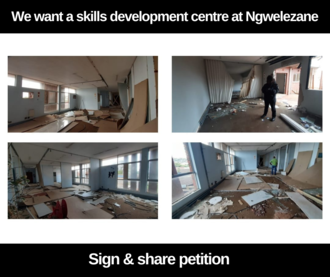
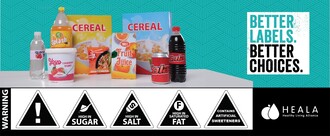
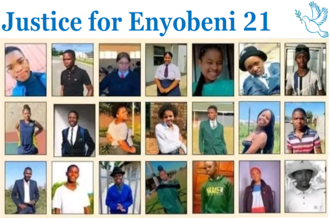
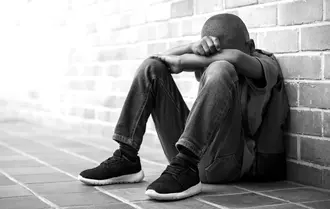
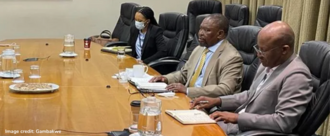


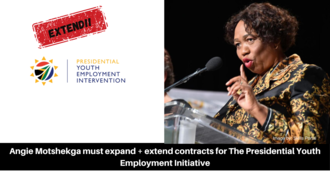
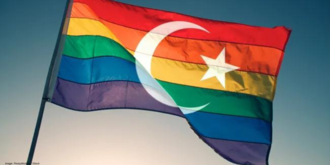
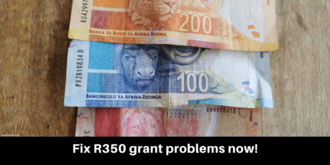.png)
